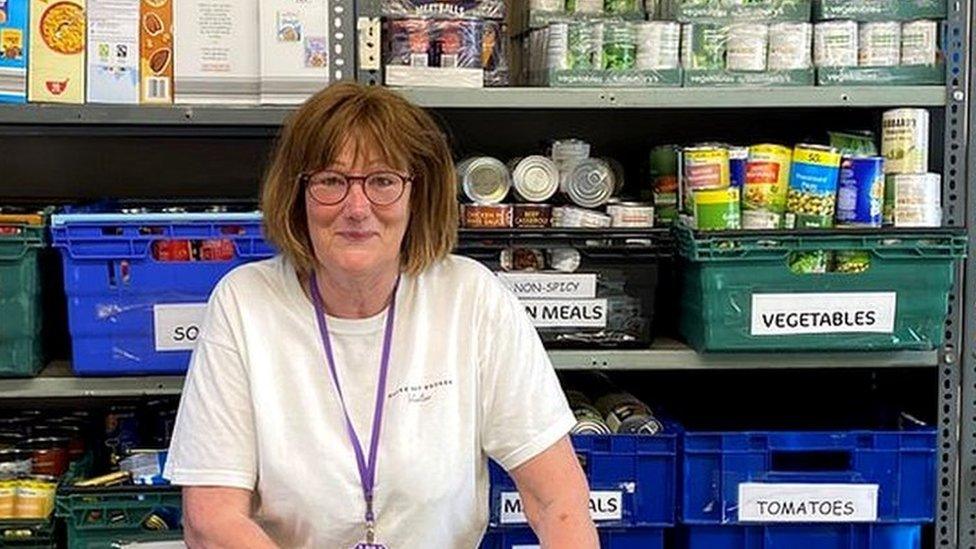Record number of people relying on food donations
- Published
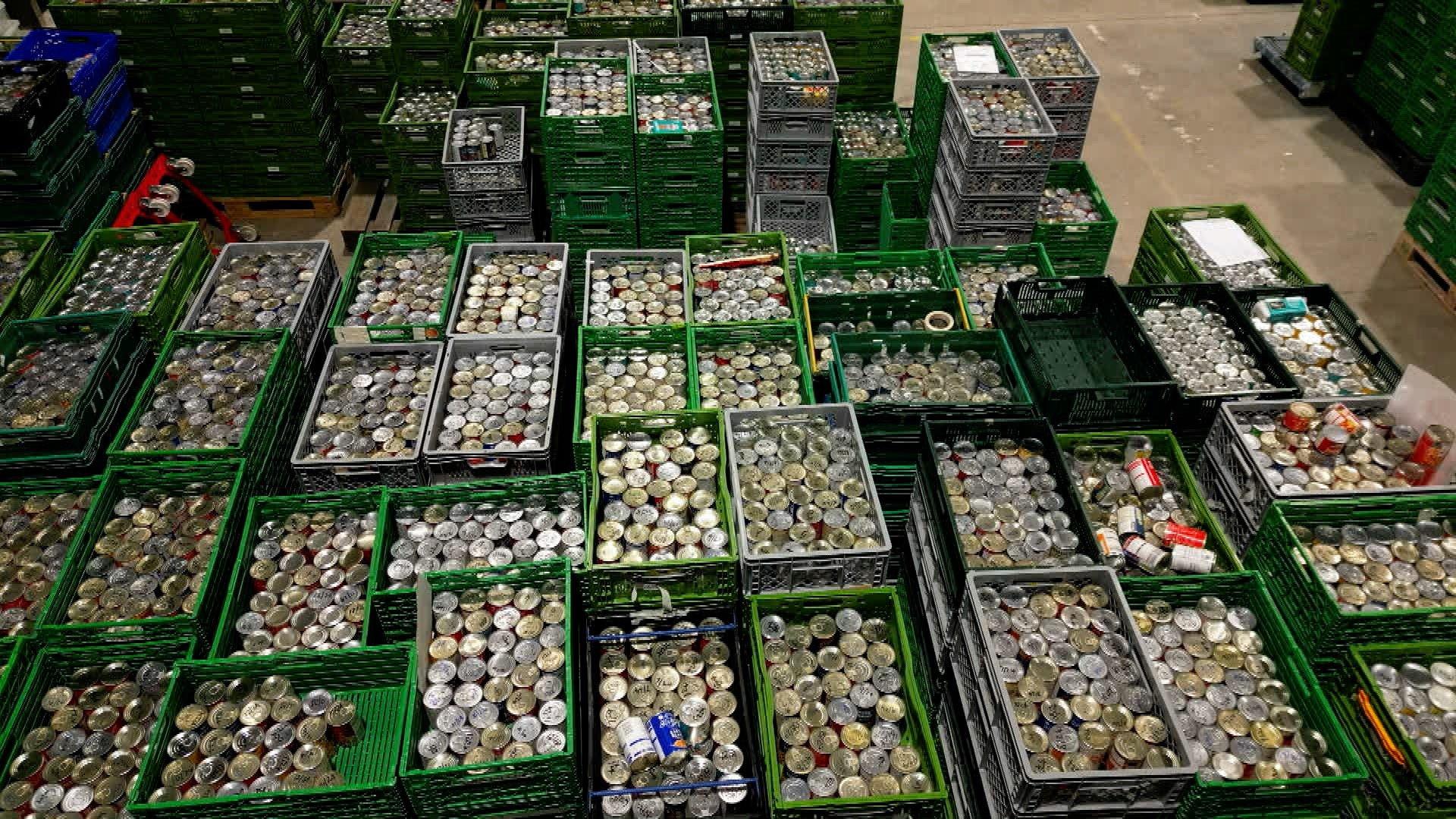
Food parcels are typically designed to give someone three days' worth of food
More food parcels than ever before were handed out in the past year by the UK's largest food-bank provider.
The Trussell Trust said almost three million had been distributed - 37% more than the previous year - with 1.1 million of them provided for children.
And in December it gave out a food parcel every eight seconds, on average.
The Department for Work and Pensions said it was giving vulnerable families "record levels of direct financial support".
Trussell Trust chief executive Emma Revie said: "It's the first time that we've distributed over one million parcels for children - an awful first to have.
"The level of need is even higher than we saw during the first year of the pandemic, which we all thought would be a record once-in-a-lifetime high."
The trust's annual report says:
more than three-quarters of a million people who received help had never before used one of its food banks
one in five people referred to a food bank was in a household where someone had a job
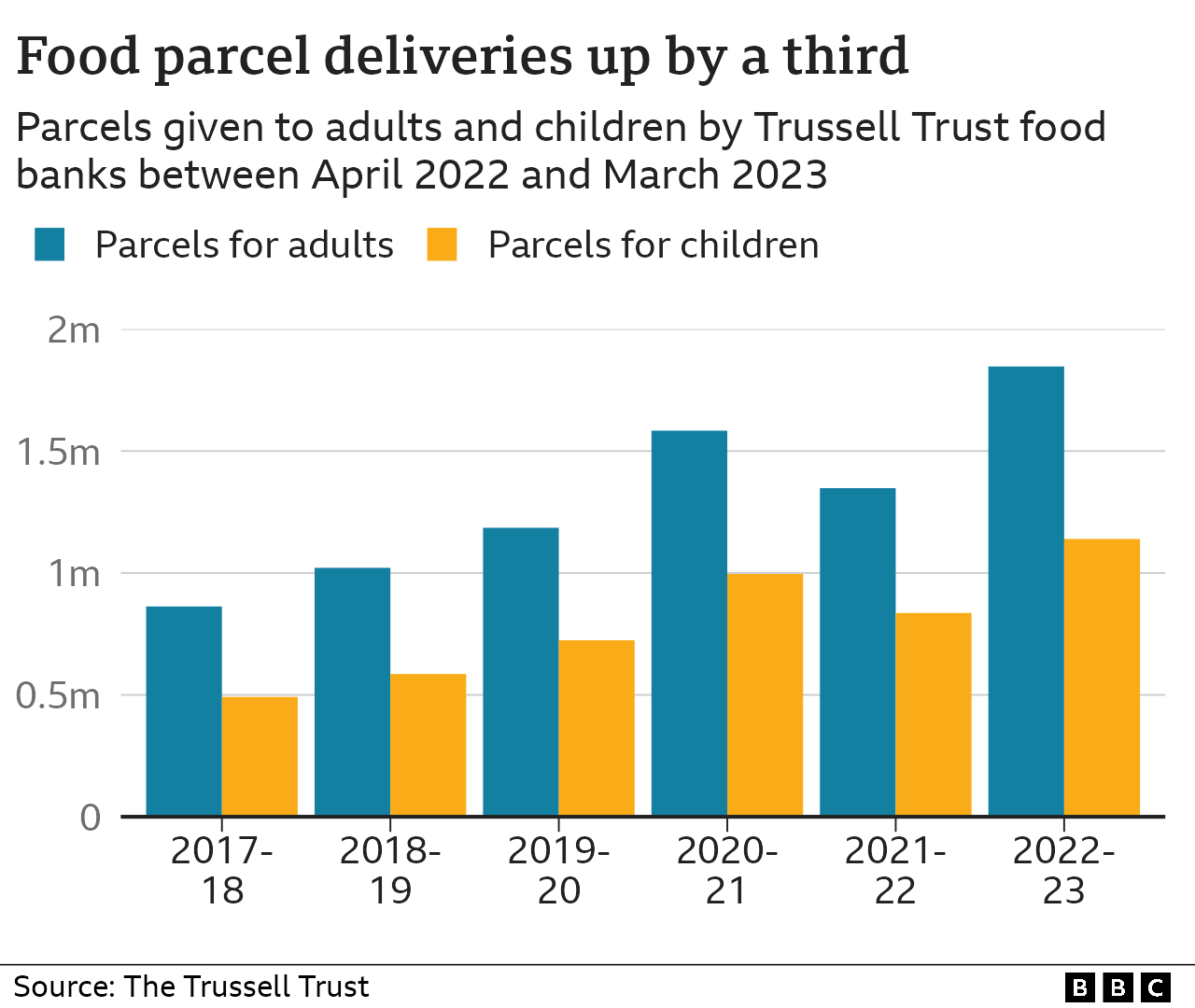
The trust provided emergency food and support from almost 1,650 centres, last year, with demand increasing in all areas of the UK but especially:
north-east and east England
south-west England
Wales
In Cardiff, Claire Hillard, picking up a food parcel for the first time in about a year, said: "I've got nothing in my fridge, my freezer - they're all empty. Even my tinned stuff has gone."
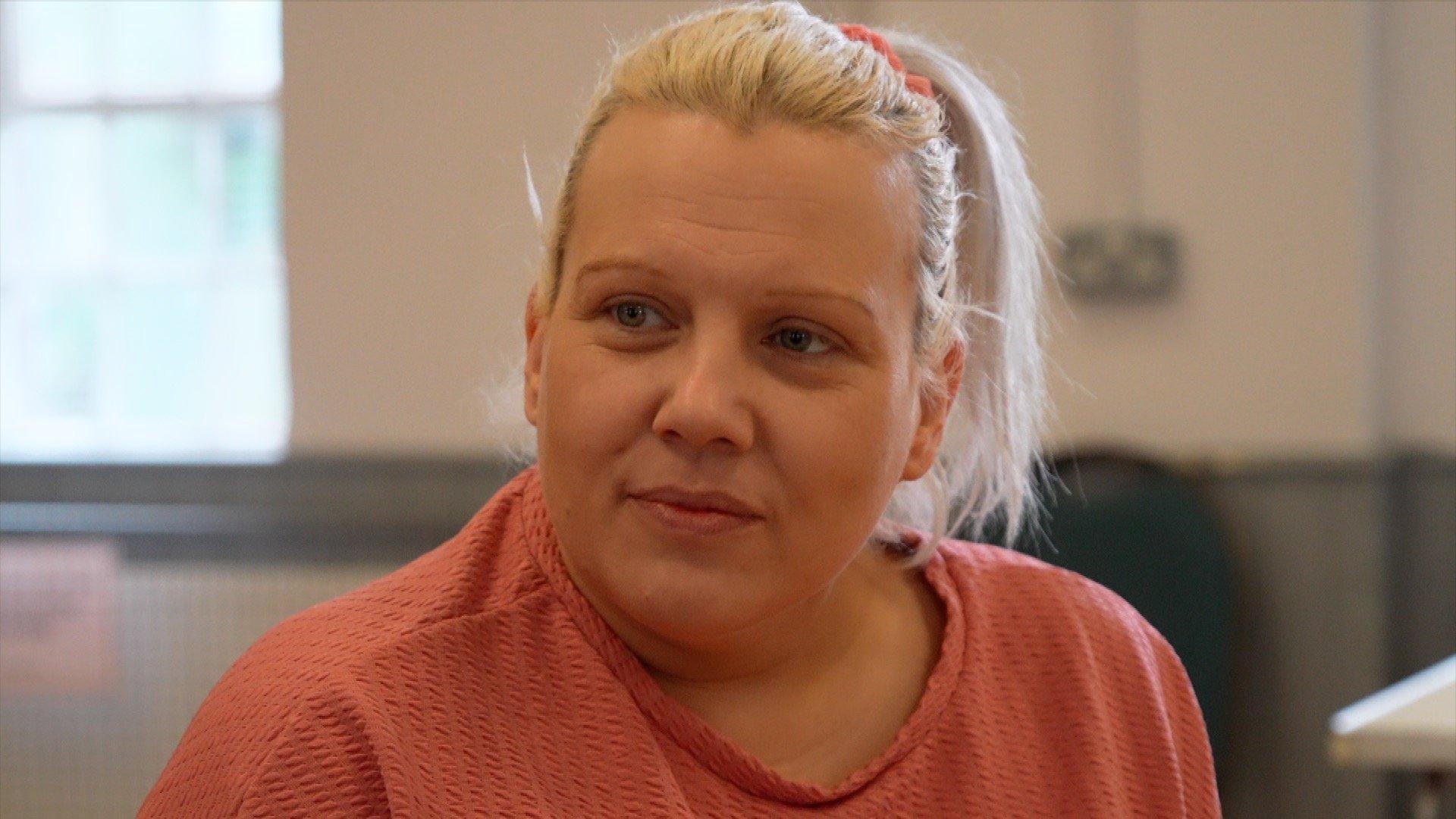
Access to the food bank has become vital for Claire Hillard
She had sometimes been too stubborn to seek help, Ms Hillard said, but "it's just got so bad now".
"My bills are literally taking up all my money and I'm left with really nothing to buy food," she said.
And with her benefit payment not due for several days, she would be unable to feed her children.
"This is what's happening now each month - come the last week and I've just got nothing," Ms Hillard said.
"Every time I go shopping, my bills just keep going up - and I feel I can't feed my two boys."
'Eradicating poverty'
Rising food and energy costs in particular have seen many households struggling over the past year - but neither the pandemic nor recent cost-of-living pressures could explain the rising demand over the past five years, Ms Revie said.
"It is ongoing low levels of income and a social-security system that isn't fit for purpose that are forcing more people to need food banks," she said.
"Food banks were set up to provide short-term support to people in an emergency - they are not a lasting solution to hunger and poverty.
"For too long people have been going without because social-security payments do not reflect life's essential costs - and people are being pushed deeper into hardship as a result."
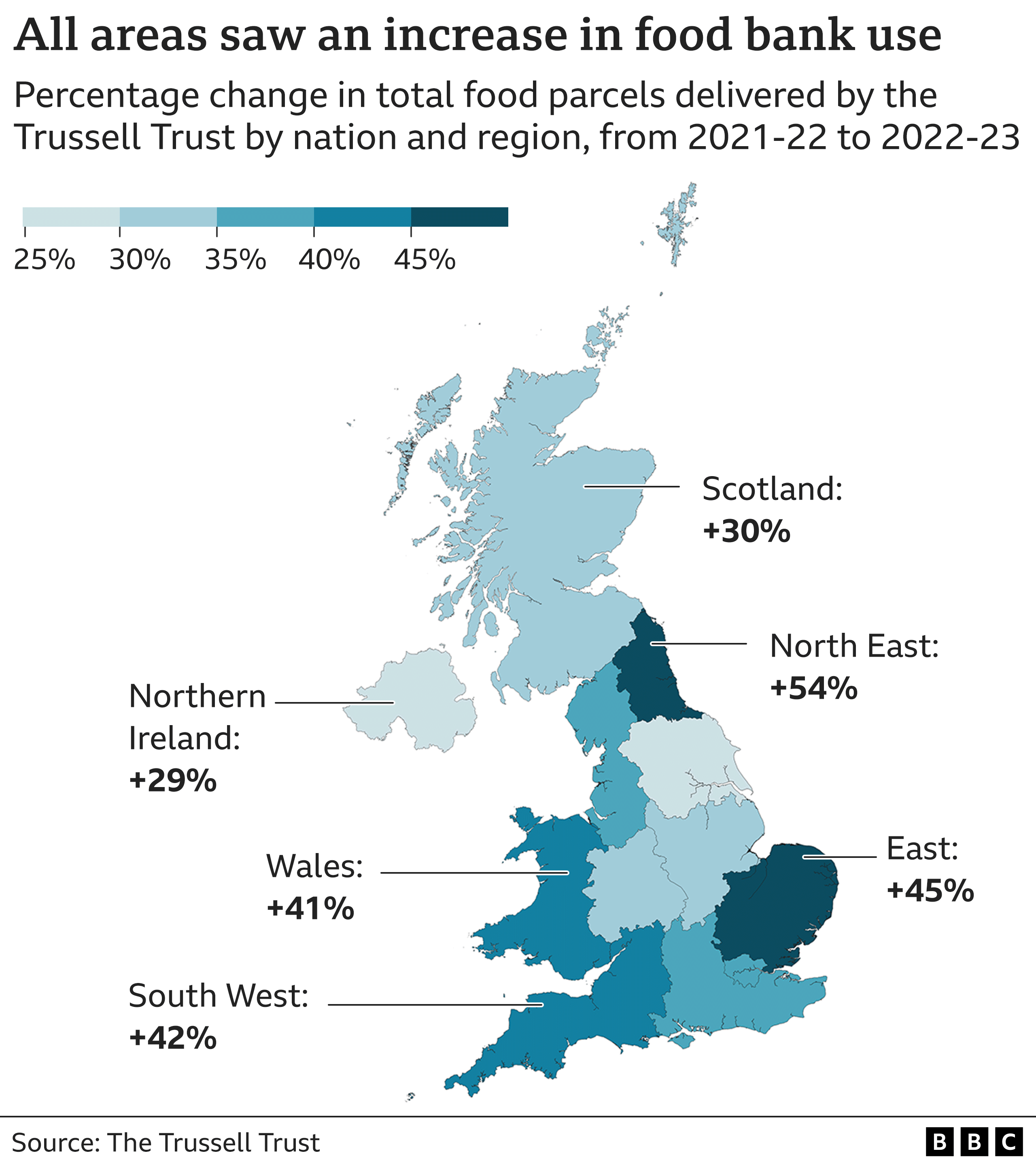
The charity is calling for the basic level of universal credit to be increased so it always covers "essential costs".
The Department for Work and Pensions said: "We are committed to eradicating poverty and we recognise the pressures of the rising cost of living, which is why we have uprated benefits by 10.1% as well as making an unprecedented increase to the National Living Wage this month.
"We are also providing record levels of direct financial support for the most vulnerable - £1,200 last year and a further £1,350 in 2023-24."
Data visualisation by Jana Tauschinski and Rob England
Related topics
- Published23 March 2023
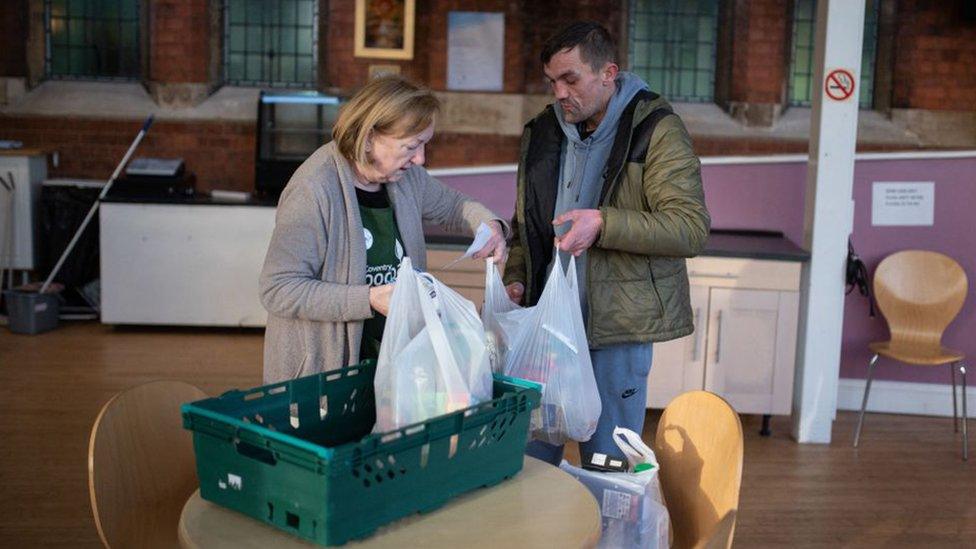
- Published22 July 2022
